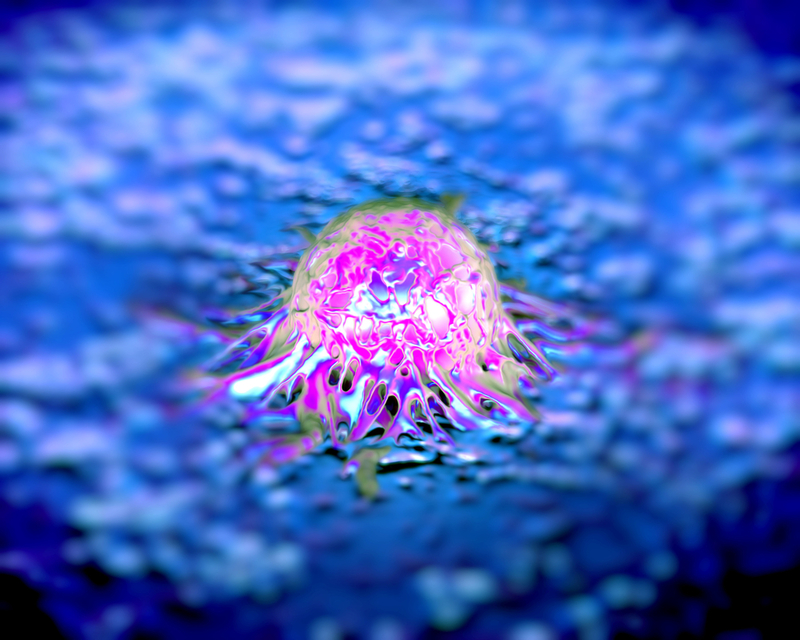Tiny changes in prostate cancer blood test indicative of treatment not working
Institute of Cancer Research News Jul 18, 2018

A test that can detect trace levels of tumor cells in the blood could help spot early signs of treatment not working for men with advanced prostate cancer.
In a new study of more than 500 men with advanced prostate cancer, researchers linked evidence of tumor cells in blood samples taken in the first 12 weeks after starting treatment with poorer outcomes later on.
The study was led by Professor Johann de Bono, Regius Professor of Cancer Research at the ICR and clinical consultant at The Royal Marsden NHS Foundation Trust.
The men had all taken part in a clinical trial of the drug abiraterone in advanced prostate cancer, and had tests to detect levels of circulating tumor cells (CTCs) after beginning treatment on the trial.
Increases of just a few tumor cells per blood sample indicated much shorter survival times, compared with when no tumor cells were detected.
In the future, the test could be used to help to rapidly assess how men with advanced prostate cancer are responding to treatment, and whether they should switch to alternative therapies.
Circulating tumor cells
There is already evidence that larger numbers of CTCs are linked to poor prognosis for patients with prostate cancer, but the findings published in the Annals of Oncology show even tiny increases can identify men whose treatment is not working.
In the study, higher numbers of CTCs in blood samples for prostate cancer patients treated with either chemotherapy or the targeted therapy abiraterone were linked to increasingly worse survival outcomes, compared with men where no cells could be detected.
Men with zero CTC counts in blood samples lived more than 2 years on average after treatment. An increase to just three or four CTCs in blood samples at 12 weeks after treatment was linked to an average survival of 15 months.
The research was supported by Prostate Cancer UK, Movember, the Medical Research Council, and Cancer Research UK.
-
Exclusive Write-ups & Webinars by KOLs
-
Daily Quiz by specialty
-
Paid Market Research Surveys
-
Case discussions, News & Journals' summaries